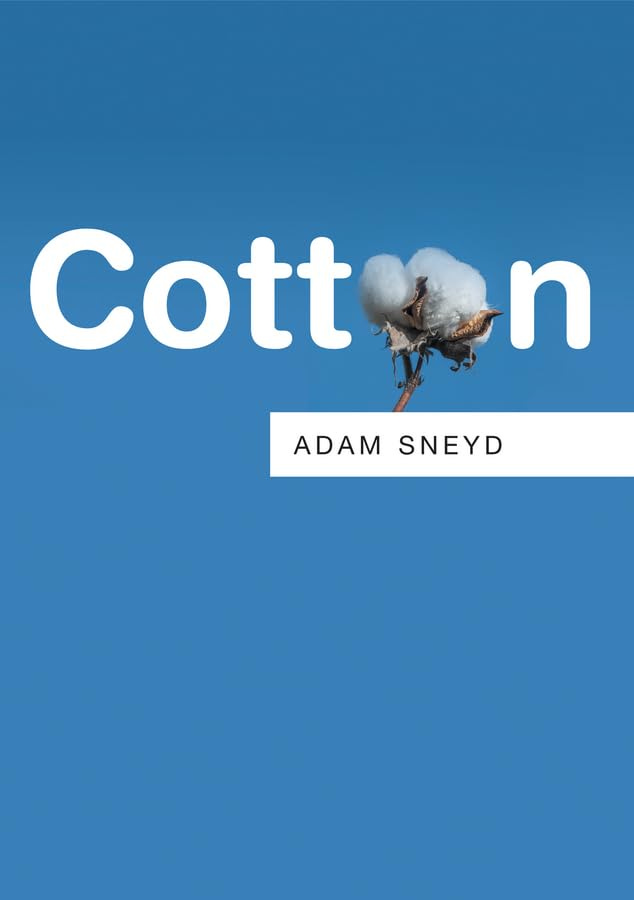Unraveling the Global Threads of Cotton: Cotton by Adam Sneyd
Cotton is an essential read for anyone interested in learning more about the global economy, corporate power, and environmental sustainability.
In Cotton, part of the Polity Resources Series, Adam Sneyd traces the far-reaching impact of one of the world’s most significant commodities. He offers an in-depth exploration that spans history, labor, and the politics of international trade. This comprehensive work delves into the global cotton industry. It examines the environmental, social, and economic implications of its production, exposing the profound ways this “simple” crop intersects with complex systems of globalization.
Sneyd not only explains the historical significance and geographical spread of cotton but also scrutinizes current cotton farming systems and labor practices, revealing how they are shaped by global markets and corporate interests. William G. Moseley of Macalester College lauds the book as “a wonderful book that teaches us about history, globalization, geography, farming systems, labor, markets, politics, and international trade,” praising Sneyd’s clear and compelling case for alternative cotton production methods.
The book goes further by uncovering the powerful influence of business interests within the cotton industry. Sneyd reveals how corporations manipulate public narratives and media, allowing them to shape consumer perceptions and control industry standards. John Perkins, author of Confessions of an Economic Hit Man, highlights this critique, calling it “an important exposé of the cotton industry” that urges readers to “look for and expose the story behind the story.”
Cotton serves as both an educational resource and a call to action. Sneyd challenges readers to question the cotton industry’s practices and its broader environmental and social impacts. By presenting a thoroughly researched and multifaceted view, Professor Sneyd sheds light on the possibility of alternative cotton production systems that prioritize sustainability and equity.
Cotton is essential for anyone interested in learning more about the global economy, corporate power, and environmental sustainability. This book enhances our understanding of a commodity that has shaped the world and invites us to imagine new, transformative paths for the industry’s future.


